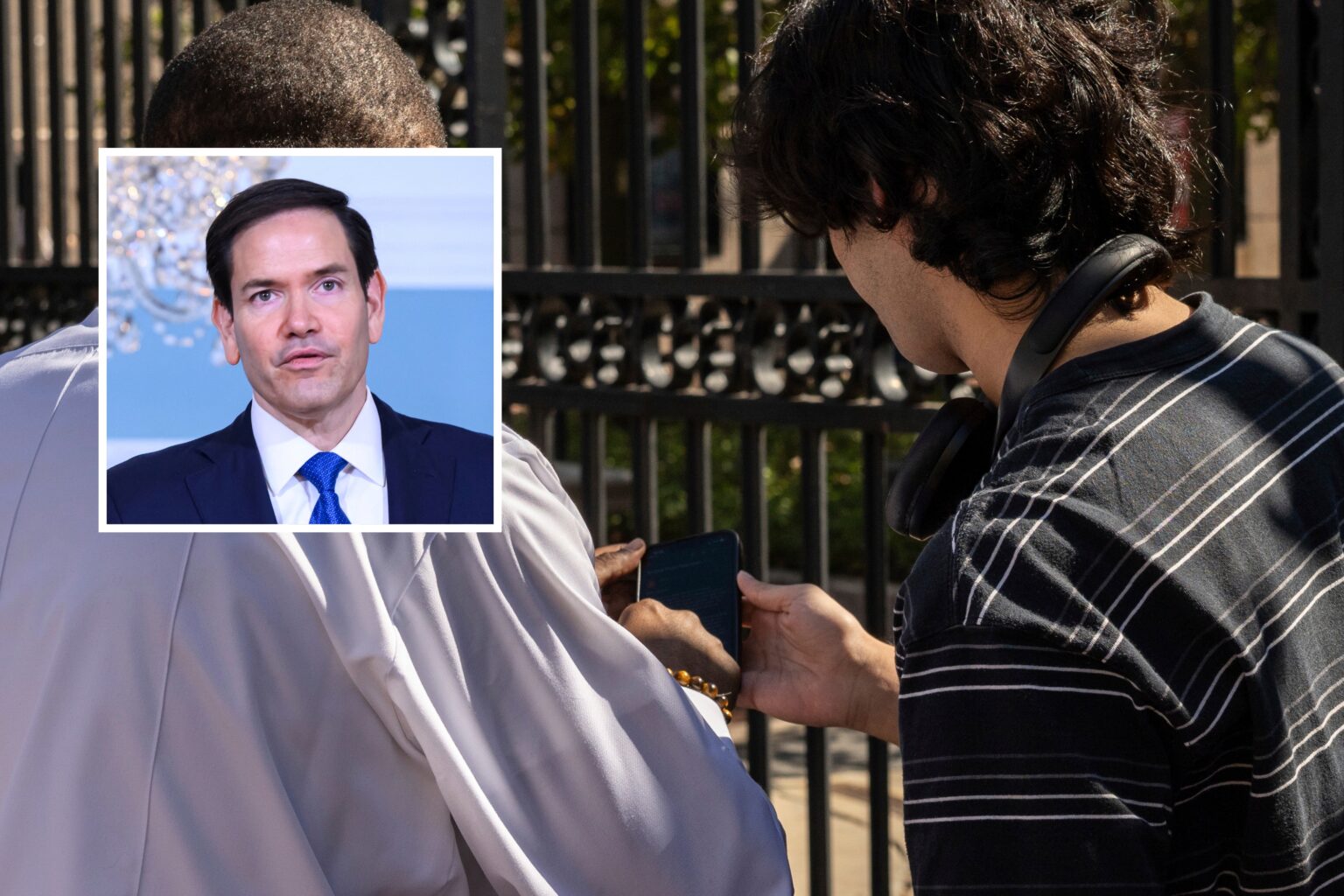The U.S. Department of State reportedly instructed embassy officials to resume student visa interviews, but with the added requirement to review all applicants’ social media accounts.
A cable issued Wednesday, obtained by Politico, directed staff to screen the social media of all foreign nationals applying for student visas for signs of hostility toward the United States and American culture, as well as any advocacy for “foreign terrorists and other threats to U.S. national security.”
Newsweek reached out to the State Department for comment via contact form on Wednesday afternoon.
Why It Matters
The Trump administration paused new student visa interviews at the end of May, amid plans to increase vetting of potential visa holders. Over 400,000 student visas were issued in Fiscal Year 2024; however, the pause put new issuances at risk for the next academic year.
What To Know
The new guidance was sent to U.S. diplomats at embassies around the world, which are responsible for issuing or denying U.S. visas. The cable, as seen by Politico, instructed staff to account for the extra time it will take to screen social media feeds.
A similar program was introduced for individuals seeking to study, teach, or participate in or conduct research at Harvard University last month.
Student visa holders already in the U.S. have been subject to increased scrutiny and immigration enforcement actions in recent months, in particular those who took part in pro-Palestinian protests on college campuses.
Some individuals have had their visas and legal status revoked, with some cases reaching the courts. The federal government has alleged that their participation in protests, or in some cases writing an op-ed or teaching a class, could be seen as antisemitic or in support of Hamas, therefore going against U.S. foreign policy. That designation allows Secretary of State Marco Rubio to revoke visas.
With embassies directed to resume scheduling interviews, staff will now have to look for signs of support for Hamas, as well as any comments or posts that “bear hostile attitudes toward our citizens, culture, government, institutions, or founding principles,” the cable said.
The U.S. Citizenship and Immigration Service (USCIS), which determines immigration applications within the country, has also indicated it will screen applicants’ profiles, adding new fields to citizenship and green card applications for account handles.
What People Are Saying
Fanta Aw, the executive director and CEO of NAFSA, Association of International Educators, told Newsweek in May: “We have said before: the students are not a threat and the way this is framed within a national security lens, as if students are a threat when we know that students make up no more than 6 percent of total enrollment in the United States.”
Secretary of Homeland Security Kristi Noem said in a statement about Harvard in May: “It is a privilege, not a right, for universities to enroll foreign students and benefit from their higher tuition payments to help pad their multibillion-dollar endowments.”
What Happens Next
Prospective students may not see an immediate change, especially if consular staff are dealing with an increased workload and backlog from the multi-week pause.
Read the full article here

